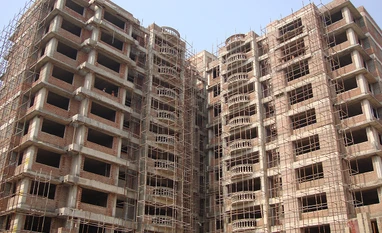Going through a liquidity crunch following the Infrastructure Leasing and Financial Services (IL&FS) crisis in 2018, it’s become difficult for developers to raise construction finance, which was once considered safest form of lending by banks and non-banking financial companies (NBFCs).
“Construction finance has become difficult even for good companies. Even public sector banks are charging at 13.5 per cent,” said Mayur Shah, managing director of Marathon Realty.
According to developers, the Rs 25,000 crore distressed asset fund set up by SBICAP Ventures is lending to developers at 15 per cent. However, Irfan A Kazi, chief investment officer at SWAMIH Investment Fund I of SBICAP Ventures said the fund manager does not charge interest till the project is completed, unlike other lenders.
“In the last eighteen months, the Reserve Bank of India (RBI) has reduced rates many times but borrowing rates for developers are becoming expensive,” Shah said.
Dhaval Ajmera, director at Mumbai-based Ajmera Realty said banks had become very strict in adhering to norms and loan disbursals have become very slow.
“Earlier, they used to sanction loans in 30-45 days. Now they take anywhere between 90 days and 120 days,” he said. Another prominent Mumbai developer who did not wish to be named said banks were not ready to take risk, and the NBFCs do not
“Even lease rental discounting (LRD) rates have gone up. LRD is the safest loan for bankers,” he said.
The developer said an NBFC in Mumbai is charging quarterly interest from developers, but stopped disbursing construction finance committed by it earlier.
Srinivasan Gopalan, chief executive at The Ozone Group, a Bengaluru-based developer, said there was no credit available. “Banks are not lending to residential projects and the NBFCs have their own challenges,” he said.
Gopalan said Ozone was mostly banking on collection from customers, and aggressively marketing its projects. “There is no problem with affordable homes in Bengaluru and Chennai,” he said.
Ajay Jain, chairman of investment advisory Monal Capital, said: “To become eligible for availing working capital, developers have to borrow at holdco level and multiple projects.” However, some of the top property developers say they have not been impacted much.
“Our current average borrowing rate is eight per cent which is more or less equivalent to last year’s borrowing rate. We have no issues in raising construction finance,” a Godrej Properties spokesperson said.
An executive from Oberoi Realty said neither Oberoi nor any reputed company have any problem in getting monies from the banks and that too on their terms. “Our borrowing cost is lowest in the industry. It has not gone up, in fact it has come down,” he said. However, bankers said they are cautious due to heightened risk in the sector.
C V Rajendran, chief executive and managing director, CSB Bank said lenders are cautious on lending for construction in parts of Mumbai, Delhi and Chennai market which are little tough. His bank will look at selective exposures with tight clauses for recovery.
Rates of interest are higher to compensate to some extent for elevated risk of default, said another private sector banker.
To read the full story, Subscribe Now at just Rs 249 a month
Already a subscriber? Log in
Subscribe To BS Premium
₹249
Renews automatically
₹1699₹1999
Opt for auto renewal and save Rs. 300 Renews automatically
₹1999
What you get on BS Premium?
-
Unlock 30+ premium stories daily hand-picked by our editors, across devices on browser and app.
-
Pick your 5 favourite companies, get a daily email with all news updates on them.
Full access to our intuitive epaper - clip, save, share articles from any device; newspaper archives from 2006.
Preferential invites to Business Standard events.
Curated newsletters on markets, personal finance, policy & politics, start-ups, technology, and more.
Need More Information - write to us at assist@bsmail.in
)